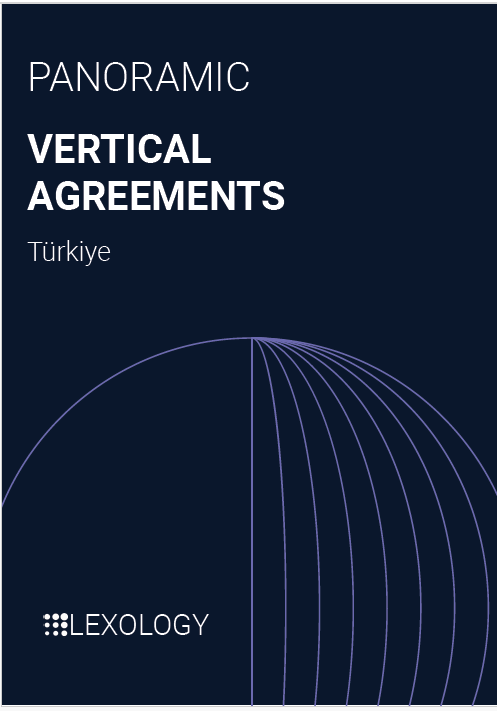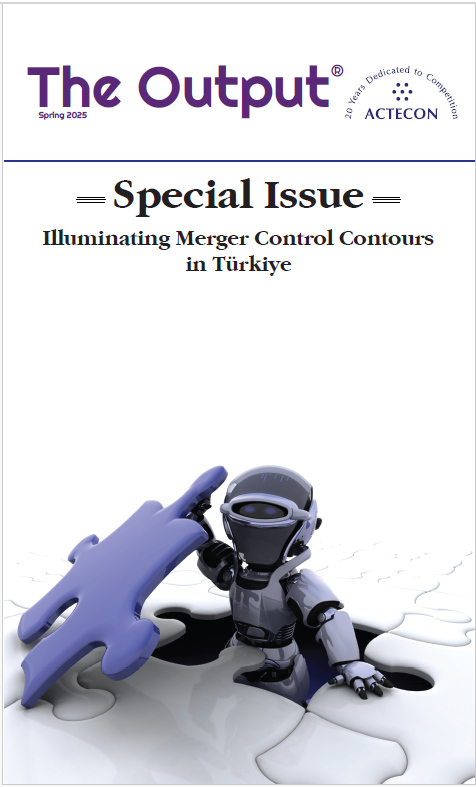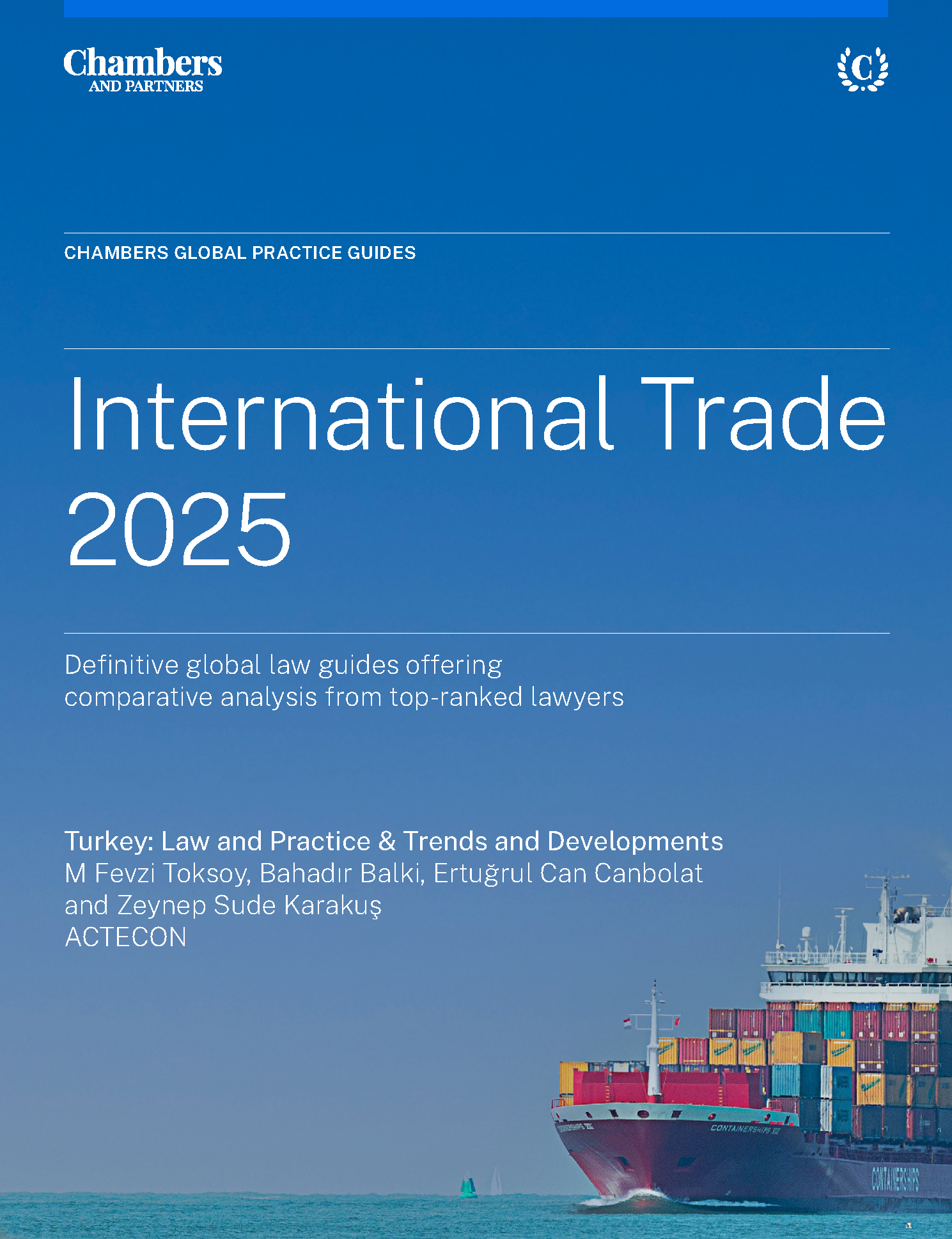Private Schools’ Practices Are Under the Scrutiny of Turkish Competition Authority
| Competition Law

Private Schools’ Practices Are Under the Scrutiny of Turkish Competition Authority
Article by Ertuğrul Can Canbolat, Safa Uygur, Sıla Coşkunoğlu and Deniz Kıvanç
On 12 January 2023, the Turkish Competition Authority (“TCA”) announced the initiation of two full-fledged investigations concerning the practices of certain private schools. Those investigations reveal that the TCA has been closely monitoring the news on the private schools’ pricing policies which have had wide coverage on the press recently and been on the agenda of the Ministry of Education (“MEB”)[1]. This piece briefly explains the new investigations as well as the previous investigations of the TCA against the private schools.
Investigation against the Private French Schools
Upon the preliminary investigation conducted by the TCA, it has been concluded that the pricing practices of Saint-Joseph French High School, Saint Benoît French High School, Notre-Dame de Sion French High School, Saint-Michel French High School and Sainte Pulchérie French High School (“Private French High Schools”) should be further examined in terms of Article 4 of the Law No. 4054 on Protection of Competition (“Competition Law”) (a provision which is similar to Article 101 of the TFEU – i.e. prohibiting the anti-competitive agreements)[2].
The Private French High Schools’ pricing policies were under the scrutiny of the TCA in two occasions previously through a preliminary investigation[3] and an individual exemption application[4].
In 2013, a preliminary investigation was initiated against the Private French High Schools to determine whether these schools (i) determined the school fees through anticompetitive agreements, concerted practices, or decisions of undertakings and (ii) entered into a gentleman’s agreement to prevent students’ transfers among themselves.
Regarding the allegation of price fixing, the Private French High Schools disclosed that they met regularly to discuss and agree on various matters such as the prices, pedagogic needs, educational schedules and cultural activities, and decided the school fees jointly. The TCA stressed that the lists for the annual school fees reported to the MEB also supported those statements.
The TCA then moved on to assess whether the price fixing by these schools resulted in any anticompetitive object or effect. The TCA first emphasized that the competition in the private education was primarily focused on the quality of the education instead of the price parameter and the fees obtained by private schools were used in order to enhance their quality of education. Furthermore, the TCA also evaluated that the main underlying motivation was to ensure higher quality and service conditions for the students and to avoid from the price parameter becoming a distinguishing factor that would prevent the formation of a joint educational vision. Hence, the TCA concluded that despite its potential to create adverse effect from the competition perspective, the relevant price fixing was not to prevent the competition but to maintain the quality of services.
Apart from those, the TCA highlighted that the supply and demand structure in the relevant market primarily based on the factors other than the price competition and there were lots of alternative private schools for consumers. Therefore, the TCA resolved that the determination of fees at a monopolistic rate through an agreement among the schools was not possible in practice as well.
Eventually, the TCA decided that (i) the price fixing by the investigated private schools did not have the object or result of preventing the competition, (ii) such prevention was not possible as per the structure of the relevant market, (iii) such practices were aimed to prevail service quality parameter over price regarding the students’ choices. That said, by noting that if the conduct of a common determination of prices becomes more widespread this may lead to the restriction of competition in the relevant market, the TCA decided to send an opinion letter to the parties with the warning to refrain from any activities that lead to or may lead to anticompetitive results.
Regarding the allegation of a gentleman’s agreement, the TCA also reviewed the student acceptance criteria of these schools; based on both the documents obtained through inspections, interviews with school officials and relevant regulations. Accordingly, the TCA concluded that student acceptances and transfers were solely based on the relevant regulations and thus there was no gentleman’s agreement completed between these schools.
In 2015, one of the Private French High Schools applied to the TCA for an individual exemption assessment regarding the price fixing practices. In its review, the TCA mainly referred to the 2013 Decision and explained that (i) cooperation agreements/practices towards price determination are considered as per se violation, which precludes them from block or individual exemption assessment, (ii) thus the negative results from such agreements cannot be compensated by efficiency gains and therefore, (iii) there was no need to conduct a detailed assessment on whether the notified scheme fulfils the criteria for an individual exemption. Additionally, the TCA emphasized that there was no need to launch a full-fledged investigation, but it decided to send a warning letter again.
Investigation against the Private Schools in Ankara
In a simultaneous investigation announcement, the TCA provided very brief information about the initiation of another investigation, this time against eight private schools in Ankara, the capital city.[5] According to the TCA’s statement, the investigation regarding the private schools in Ankara also focuses on the determination of whether there is a violation of Article 4 of the Competition Law, but no further details on the types of the investigated practices were disclosed.
The practices of certain private schools and an association of private schools were again under the scrutiny of the TCA before in 2011. At the time, the TCA had initiated a preliminary investigation against those to determine whether these schools engaged in price fixing and jointly determination of the personnel policies through Private Schools Union Association and Ankara Private Schools Association (e.g., wage fixing and no-transfer agreements).[6]
After summarising the findings collected during the preliminary investigation through media publications and on-the-spot inspections, the TCA provided an overview of the increase trends in private school fees in the last five years. In this respect, prior to its assessments on the merits, the TCA first noted that (i) the price increase rates were generally different from each other and (ii) the majority of these schools increased their prices above the average annual CPI changes, while some of the price increases were below this rate.
During the preliminary investigations, the TCA obtained agenda notes which referred to meetings held between certain private schools concerning the joint determination of school fees, scholarships, payment due dates and salaries of employees for the year 2001-2002. While emphasising that such meetings could be considered as anticompetitive within the scope of Article 4 of the Competition Law, the TCA evaluated that it was not possible to take any action based on the documents obtained since the statute of limitations had lapsed.
The TCA also found information and documents relating to fee discussions during meetings within Private Schools Union Association (“PSUA”) and Ankara Private Schools Association. Furthermore, certain officers were interviewed during the investigation and they stated that (i) matters relating to fees were discussed during association meetings, (ii) generally no written decisions were issued but matters were discussed verbally. Lastly, the TCA found that associations were ‘recommending’ price increases to its members, including for example, raising the prices to a certain level above the CPI.
In that context, after a brief reference to the relevant statements from the documents obtained during the preliminary investigation period (e.g., certain e-mails and media reports), it was noted that the Association conveyed its fee related recommendations and common understanding reached during the meetings in a non-binding advisory decision. Accordingly, following a brief explanation of the concept of concerted practices in Turkish and EU law, the TCA concluded that although these advisory decisions are not binding, they are violations by object and therefore should be evaluated within the scope of Article 4 of the Competition Law.
A third category of documents obtained by the TCA related to “Principles of Private Schools” (“PPS”) prepared by the PSUA, which governed acceptance of students as well as employment conditions for teachers. The TCA established that the rules incorporated in the PPS were anticompetitive as they contained restrictions on the (i) employment and transfer of teachers between competing private schools and (ii) fees and scholarships offered to students. In that context, the TCA concluded that the PPS aimed to weaken the bargaining power of consumers and limit their preferences by allowing private schools to act in concert, and made it difficult for teachers working at private schools to transfer to other schools.
The TCA then moved on to assess whether an individual exemption could be granted to the rules included in the PPS, under the Article 5 of the Competition Law. In that regard, the TCA emphasised that the mere object of developing the dialogue and goodwill amongst competing undertakings without any benefits for consumers could not be protected under competition law. Conversely, the TCA stated, the rules under PPS did not result in any significant benefits for the consumers and caused damages to consumers as well as teachers working in these schools. Accordingly, the TCA concluded that the principles could not benefit from an individual exemption within the scope of Article 5 of the Competition Law as they limited competition among private schools.
Ultimately, the TCA decided that there was no need to launch a full-fledged investigation and sent a warning letter to private schools, Ankara and Istanbul Provincial Directorates of National Education and the PSUA.
Conclusion
The initiation of the two full-fledged investigations concerning the practices of certain private schools represents a markedly different approach by the TCA, compared to its previous decisions. As explained above, the practices of private schools were under TCA’s scrutiny previously, particularly between the years 2011 to 2015. However, the mentioned preliminary investigations had not led the TCA to initiate a full-fledged investigation regarding the practices of private schools. Following the announcement of the full-fledged investigations, it remains to be seen whether the TCA is set to change its previous approach.
Previously published by Concurrences on January 19, 2023
[1] See the recent amendment to Regulation on Private Educational Institutions by MEB, published on the Official Gazette, dated 06 January 2023 and numbered 32065. The amended rules revise the maximum increase rate that private schools can apply to their respective fees. Accordingly, the MEB will determine a maximum increase rate, by taking the annual consumer price index (“CPI”) into account. The repealed rule had established that the increase rates shall be determined at maximum 5% over the PPI+CPI/2 of the previous year. (https://www.resmigazete.gov.tr/eskiler/2023/01/20230106-4.htm).
[2] See the TCA’s announcement: https://www.rekabet.gov.tr/tr/Guncel/ozel-saint-joseph-fransiz-lisesi-ozel-sa-6856462c4192ed11a2110050568520f2
[3] Decision dated 19.12.2013 and numbered 13-71/960-407 (“2013 Decision”): https://www.rekabet.gov.tr/Karar?kararId=dfce5cfc-3318-435c-8fae-555ba3acc052
[4] Decision dated 07.07.2015 and numbered 15-28/328-103 (“2015 Decision”): https://www.rekabet.gov.tr/Karar?kararId=f86a1b00-512a-43cd-bbbb-b3a36bc6a606
[5] See the TCA’s announcement: https://www.rekabet.gov.tr/tr/Guncel/ankara-merkezli-olarak-faaliyet-gosteren-c985ce9f4192ed11a2110050568520f2
[6] Decision dated 03.03.2011 and numbered 11-12/226-76 (“2011 Decision”): https://www.rekabet.gov.tr/Karar?kararId=7557b1b6-700b-4ffc-858b-bc832991cadd







